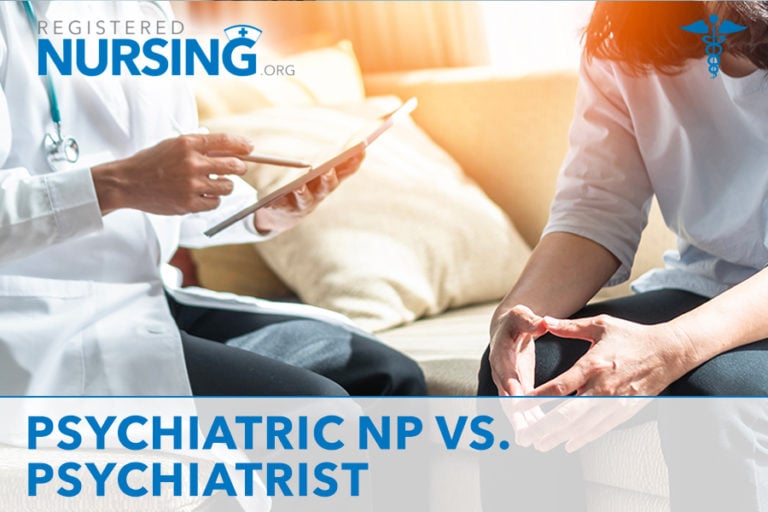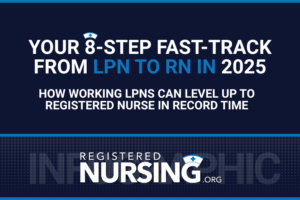Psychiatric Nurse Practitioner vs. Psychiatrist: Which Path is Right for You?

Choosing a career in the field of mental health can be both rewarding and challenging. As you contemplate your future in this vital field, you may find yourself torn between two promising career paths: becoming a Psychiatric Nurse Practitioner (PNP) or a psychiatrist. Each role plays a crucial role in addressing mental health issues, but they have distinct differences in terms of education, training, responsibilities, and career prospects. In this article, we will explore the key aspects of both professions to help you decide which path suits your interests and goals better.
Quick Overview
| Psychiatric Nurse Practitioner | Psychiatrist | |
| Education | Master’s or Doctorate in Nursing (MSN, DNP) with a focus on psychiatry | Doctor of Medicine (MD) or Doctor of Osteopathic Medicine (DO) with a residency in psychiatry |
| Training | -2-3 years of advanced nursing education -Clinical hours in psychiatric settings -Certification by ANCC as a Psychiatric-Mental Health Nurse Practitioner (PMHNP) | -4 years of medical school -4 years of residency in psychiatry -Board certification by the American Board of Psychiatry and Neurology (ABPN) |
| Scope of Practice | Diagnose mental health conditions, prescribe medications (varies by state), provide therapy and counseling, manage patient care | Diagnose and treat complex mental health disorders, prescribe and manage psychiatric medications, provide therapy and other medical treatment |
| Skills | Patient assessment, counseling, medication management, collaborative care | Advanced diagnostic skills, psychopharmacology, psychotherapy, crisis intervention, research and teaching |
| Work Settings | Outpatient clinics, community health centers, private practice, hospitals | Hospitals, private practice, academic institutions, research facilities, mental health clinics |
| Salary | Average of $134,540 per year | Average of $247,350 per year |
Education and Training
One of the primary distinctions between a Psychiatric Nurse Practitioner and a Psychiatrist is the educational and training requirements.
Psychiatric Nurse Practitioner (PNP)
To become a Psychiatric Nurse Practitioner, you typically need to follow these steps:
- Bachelor of Science in Nursing (BSN): Start by obtaining a bachelor’s degree in nursing, which usually takes four years to complete.
- Registered Nurse (RN) Licensure: After earning your BSN, you must pass the NCLEX-RN exam to become licensed as an RN. You can start gaining valuable clinical experience as a general nurse at this stage.
- Master’s Degree or Doctorate in Psychiatric-Mental Health Nursing: To specialize in psychiatric nursing at the NP level, you will need to pursue, at minimum, a master’s degree in psychiatric-mental health nursing, which takes approximately two to three years. During your psychiatric nurse practitioner program, you will gain in-depth knowledge and clinical skills related to mental health care. You can also pursue a DNP psychiatric-mental health nurse practitioner program if you wish to go the doctorate route, but this will require more in-depth education. Keep in mind that a DNP, while a doctorate-level nursing degree, has a different scope of practice than an MD. Learn more about DNP vs. MD.
- Psychiatric Nurse Practitioner Certification: Upon completing your master’s program, you must become certified as a Psychiatric Nurse Practitioner through a certification board such as the American Nurses Credentialing Center (ANCC) or the American Association of Nurse Practitioners (AANP). Certification requirements may include passing an exam and meeting clinical practice hours.
The education and training for a Psychiatric Nurse Practitioner are extensive and provide a strong foundation in nursing and mental health care.
Psychiatrist
Becoming a Psychiatrist involves a more prolonged and intensive educational journey:
- Bachelor’s Degree: Start by earning a bachelor’s degree, which typically takes four years.
- Medical School: Following your undergraduate studies, you’ll need to attend medical school, which typically takes four years. In medical school, you’ll receive comprehensive training in all aspects of medicine, including psychiatry.
- Residency in Psychiatry: After medical school, you must complete a residency program in psychiatry, which typically lasts four years. During this time, you’ll receive specialized training in diagnosing and treating mental health disorders under the guidance of experienced psychiatrists.
- Psychiatrist Licensure and Certification: To practice independently, you must obtain a medical license and may also choose to become board-certified by passing the American Board of Psychiatry and Neurology (ABPN) examination.
While the path to becoming a Psychiatrist is significantly longer and more rigorous than that of a Psychiatric Nurse Practitioner, it offers a deeper understanding of medical sciences and a broader range of treatment options.
Scope of Practice
The scope of practice for Psychiatric Nurse Practitioners and Psychiatrists varies due to differences in education and training.
Psychiatric Nurse Practitioner (PNP)
PNPs are trained to provide comprehensive mental health care, including:
- Conducting psychiatric assessments and diagnosing mental health disorders.
- Developing treatment plans, including medication management and therapy.
- Prescribing medications within their scope of practice.
- Offering psychotherapy and counseling.
- Collaborating with other healthcare professionals to provide holistic care.
PNPs often work in collaboration with psychiatrists, psychologists, social workers, and other healthcare providers to offer a team-based approach to patient care. They may have a more patient-centered and holistic approach to care, considering not only the mental health of the patient but also their physical health and social well-being.
Psychiatrist
Psychiatrists are medical doctors who can:
- Diagnose and treat mental health disorders.
- Prescribe medications and provide medication management.
- Conduct psychotherapy and other forms of talk therapy.
- Order and interpret medical tests.
- Provide a wide range of treatment options, including electroconvulsive therapy (ECT) and transcranial magnetic stimulation (TMS).
- Offer inpatient psychiatric care and crisis intervention.
Psychiatrists have a broader scope of practice and can handle complex cases, including those with severe mental illnesses and comorbid medical conditions. They often work independently and may be the primary healthcare provider for their patients.
Patient Population and Setting
The type of patients you wish to work with and your preferred work environment can significantly influence your career choice.
Psychiatric Nurse Practitioner (PNP)
PNPs often work with a diverse population in various healthcare settings, including:
- Outpatient mental health clinics
- Private psychiatric practices
- Hospitals (both general and psychiatric units
- Schools
- Correctional facilities
- Substance abuse treatment centers
PNPs may have the opportunity to work with a wide range of patients, from children and adolescents to adults and the elderly. They often provide ongoing care and follow-up for patients with chronic mental health conditions.
Psychiatrist
Psychiatrists have more flexibility in choosing their patient population and practice settings. They can work in:
- Private practices
- Hospitals (including psychiatric hospitals)
- Academic institutions (teaching and research)
- Community mental health centers
- Government agencies (such as the VA or the military)
Psychiatrists can choose to specialize in various areas, such as child and adolescent psychiatry, geriatric psychiatry, addiction psychiatry, or forensic psychiatry. This allows them to tailor their practice to their interests and expertise.
RELATED: Nursing Careers & Specialties: What Are My Options?
Autonomy and Supervision
The level of autonomy and supervision varies between Psychiatric Nurse Practitioners and Psychiatrists.
Psychiatric Nurse Practitioner (PNP)
PNPs often work under psychiatrists’ supervision, particularly when newly certified. However, their level of autonomy can increase with experience, and many PNPs eventually work independently, particularly in outpatient settings. State regulations also influence the degree of autonomy PNPs have, as some states grant full practice authority to nurse practitioners, allowing them to work independently.
Psychiatrist
Psychiatrists have a high degree of autonomy in their practice. They can diagnose, prescribe medication, provide therapy, and make treatment decisions independently. They may consult with other healthcare professionals when necessary but generally do not require direct supervision.
The level of autonomy you desire in your practice may influence your decision between these two professions.
Earnings and Career Prospects
Earnings and career prospects can vary based on your chosen profession and location.
Psychiatric Nurse Practitioner (PNP)
According to the Bureau of Labor Statistics (BLS), the median annual wage for nurse practitioners, including psychiatric nurse practitioners, was $134,540in May 2022. Earnings can vary based on factors such as experience, location, and practice setting.
The demand for nurse practitioners, including PNPs, is expected to grow significantly due to the increasing need for mental health services. PNPs have a promising career outlook, with opportunities for advancement into leadership roles or specialized areas of practice.
Psychiatrist
Due to their extensive education and training, psychiatrists tend to have higher earning potential than PNPs. According to the BLS, the median annual wage for psychiatrists was $247,350 in May 2022. However, it’s important to consider the significant time and financial investment required to become a Psychiatrist.
The demand for psychiatrists also remains high, particularly in underserved areas and for specialties like child and adolescent psychiatry. Psychiatrists have the opportunity to build a rewarding and financially stable career.
Work-Life Balance and Burnout
Both professions can be emotionally demanding, and mental health providers often face burnout due to the nature of their work. However, there are some differences in work-life balance.
Psychiatric Nurse Practitioner (PNP)
PNPs may have more flexibility in their work hours, particularly if they work in outpatient settings. They can choose to work in part-time or full-time positions, which can help them achieve a better work-life balance. However, those working in crisis settings or inpatient units may have more irregular hours.
Psychiatrist
Psychiatrists often have more demanding work schedules, especially during residency and early in their careers. They may be on call for emergencies, work long hours, and have irregular schedules. However, as they gain experience and establish their practices, they may have more control over their hours and workload.
Considering your personal preferences and priorities is crucial when assessing work-life balance and potential burnout risks.
Latest Articles & Guides
One of the keys to success as a registered nurse is embracing lifelong learning. Our articles and guides address hot topics and current events in nursing, from education to career mobility and beyond. No matter where you are on your nursing journey, there’s an article to help you build your knowledge base.
Browse our latest articles, curated specifically for modern nurses.



